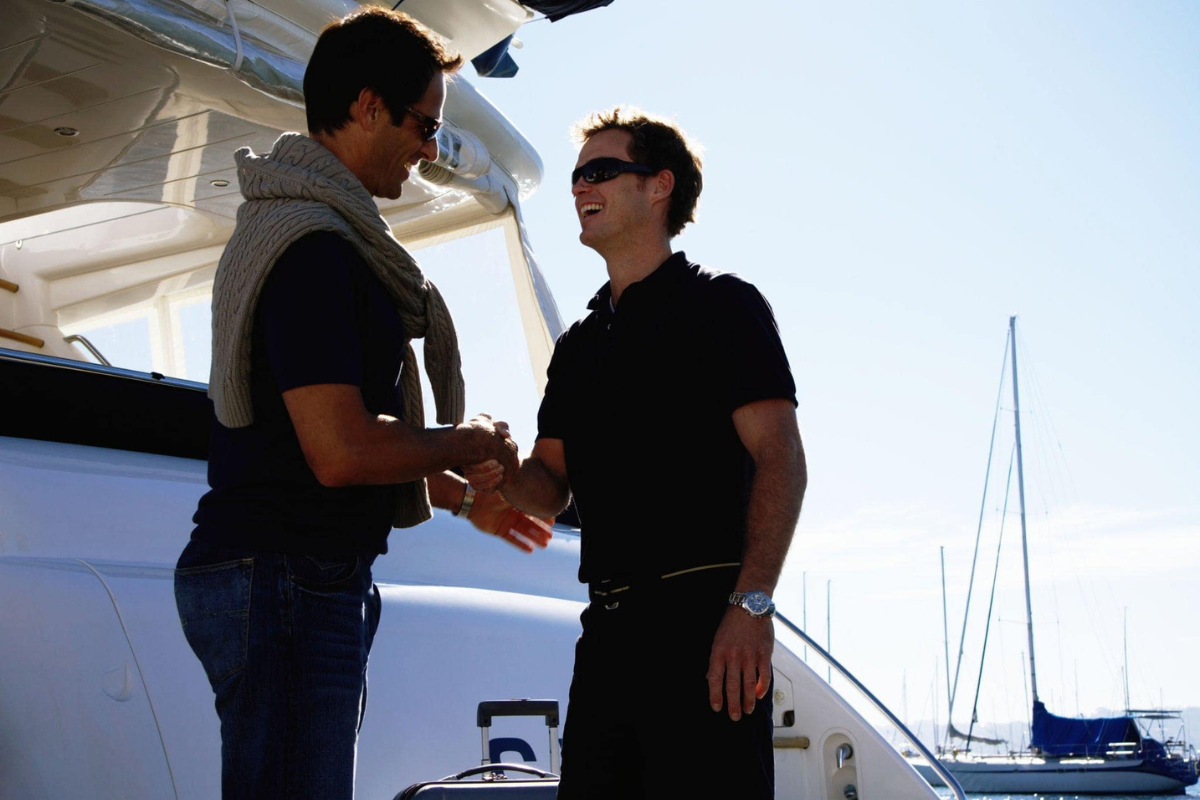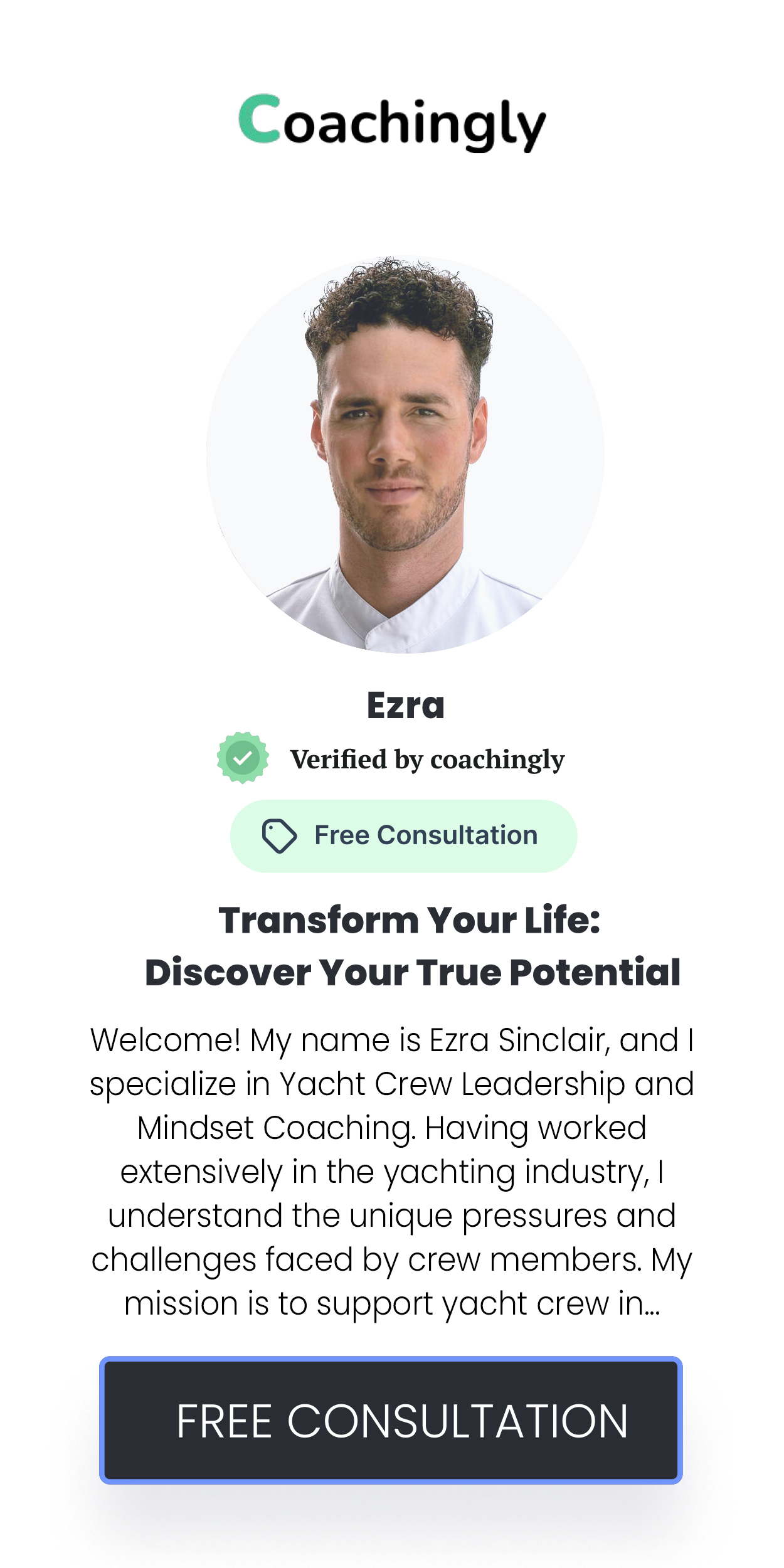
Handling High Expectations: Strategies for Delivering Exceptional Service
![]() Ezra Sinclair
Ezra Sinclair
![]() October 22, 2024
October 22, 2024
High expectations are intrinsic to the luxury yachting industry. Guests anticipate service that surpasses their experiences in fine hotels or upscale restaurants, leading to significant pressure on crew members. Understanding these expectations is crucial, as they originate from both guests and yacht owners. The demands can impact crew morale and performance, highlighting the need for effective strategies to manage stress while maintaining high standards. A yacht crew leadership coach is essential for addressing the challenges of high expectations. By focusing on leadership development, a coach helps crew members thrive under pressure. Effective leadership is critical in high-stakes situations, fostering a supportive environment that encourages communication and collaboration. A coach empowers crew members to identify their strengths, enhancing emotional intelligence, which is vital for understanding guest needs. This mentorship cultivates resilience and adaptability, allowing the crew to excel in their roles. Creating a culture of excellence within a yacht crew is essential for consistent service delivery. This culture begins with a team-oriented mindset focused on collaboration and shared goals. Open communication facilitates discussions about performance standards and personal development, fostering a sense of ownership among crew members. When crew members take pride in their work, they are more likely to exceed guest expectations. Recognizing individual and team achievements reinforces a positive atmosphere that enhances overall performance. Effective communication is vital in the yachting industry. Clear and concise messaging helps ensure everyone understands their roles, reducing misunderstandings. Active listening allows crew members to connect with colleagues and guests, enhancing service delivery. Techniques such as mirroring and summarizing can clarify messages and confirm understanding. Training crew members in different communication styles foster smoother interactions. By prioritizing effective communication, crews minimize conflicts, improve teamwork, and enhance the guest experience. Managing stress is crucial for yacht crew members operating in high-pressure environments. Recognizing stress triggers is the first step in effective management. Crew members should learn to identify their stress signals and employ techniques such as mindfulness and deep breathing exercises. Encouraging regular breaks helps prevent burnout while building a support network fosters an environment of understanding. Developing a culture that values work-life balance reduces stress levels, equipping crew members to meet high expectations. Resilience and adaptability are invaluable traits for yacht crew members. Embracing a growth mindset allows crew members to view challenges as opportunities. Training sessions focused on resilience equip the crew with strategies for bouncing back from setbacks. Encouraging flexibility in roles helps navigate unexpected situations. Regular self-reflection enhances responses to stressors, fostering personal growth. A culture of resilience and adaptability enables crews to maintain high service standards, even under pressure. Establishing realistic goals and service standards is vital for managing high expectations. Crew members need clear benchmarks to guide performance and ensure effective service delivery. Collaborating to set SMART goals enhances accountability and motivation. Ongoing education on best practices prepares crew members for evolving expectations. Aligning crew goals with the yacht's overarching standards fosters unity and purpose, increasing the likelihood of delivering exceptional service. Ongoing training and continuous improvement are crucial for maintaining high service standards. Crew members should have access to regular training sessions focused on essential skills such as leadership, communication, and problem-solving. Incorporating feedback into the training process encourages personal growth and adaptability. Workshops and team-building exercises strengthen team dynamics, fostering collaboration and trust. By investing in ongoing development, yacht crews can navigate the challenges of high expectations more effectively, improving service delivery and guest satisfaction.Understanding High Expectations in the Yachting Industry
The Role of a Yacht Crew Leadership Coach
Building a Culture of Excellence
Effective Communication Techniques
Stress Management Strategies
Developing Resilience and Adaptability
Setting Realistic Goals and Standards
Continuous Improvement and Training

Recent Articles
How Effective Leadership Transforms the Yacht Crew Experience
The yachting industry demands ...
![]() Oct 29, 2024
Oct 29, 2024
Navigating Crew Communication: Tips for a Cohesive Team Environment
Effective communication is ess...
![]() Oct 28, 2024
Oct 28, 2024
Building Resilience: How Yacht Crew Can Develop a Growth Mindset
Understanding Resilience in th...
![]() Oct 27, 2024
Oct 27, 2024
The Power of Empathy in Yacht Crew Leadership
Understanding Empathy in Leade...
![]() Oct 26, 2024
Oct 26, 2024
Overcoming Isolation and Loneliness on Long Yacht Assignments
Understanding isolation and lo...
![]() Oct 25, 2024
Oct 25, 2024
Essential Stress Management Techniques for Yacht Crew Members
Understanding Stress in the Ya...
![]() Oct 24, 2024
Oct 24, 2024
How to Foster Strong Relationships Among Yacht Crew Members
The world of yachting presents...
![]() Oct 23, 2024
Oct 23, 2024
Communication Barriers on Yachts: Solutions for a Diverse Crew
Understanding Communication Ba...
![]() Oct 21, 2024
Oct 21, 2024
How Yacht Crew Leaders Can Promote Work-Life Balance at Sea
Understanding Work-Life Balanc...
![]() Oct 20, 2024
Oct 20, 2024
5 Key Mindset Shifts for Thriving in the Yachting Industry
Understanding the Unique Chall...
![]() Oct 19, 2024
Oct 19, 2024
Yacht Crew Turnover: Strategies for Retaining Top Talent
Understanding Yacht Crew Turno...
![]() Oct 18, 2024
Oct 18, 2024
Understanding and Managing Guest Expectations for Yacht Crew
The Importance of Guest Expect...
![]() Oct 17, 2024
Oct 17, 2024
